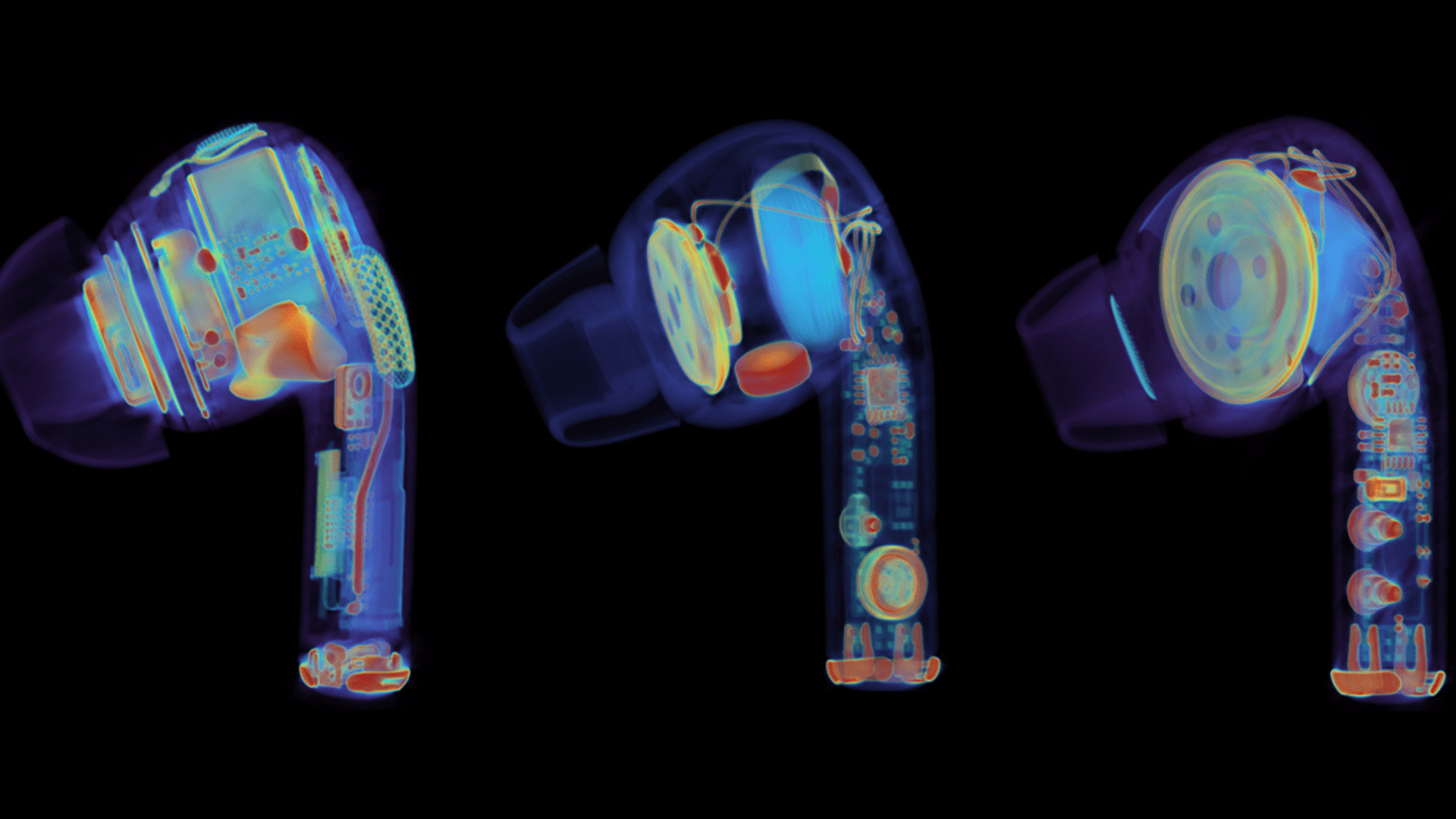Affiliate links on Android Authority may earn us a commission. Learn more.
We know fake AirPods suck, but now we can actually see why
Published onNovember 7, 2023

- A firm specializing in CT scanning has put Apple’s AirPods Pro (2nd gen) and a couple of fakes under the X-ray.
- The scans show that Apple’s product is far more complex than any counterfeit version.
When a company makes a popular, high-quality product — like the AirPods Pro — ripoffs are sure to come out of the woodwork. These days, counterfeits have become sophisticated enough that they look a lot like the devices they are based on. However, that exterior is the only thing that comes close to the real version, and now we know why, thanks to some new X-ray scans.
Lumafield, the firm that showed us the difference between $5 and $130 USB-C cables, has now done the same with Apple’s AirPods Pro (2nd gen) vs its imposters. The 3D scans do an incredible job of showing how much more complex the real deal is compared to its imitators.
The world is full of counterfeit Apple products. We CT scanned two fake AirPods and compared them to the real thing… 🧵 pic.twitter.com/VFWvAwUrox— Jon Bruner (@JonBruner) November 7, 2023
The main points of interest they break down are the battery, build quality, and circuitry. Starting with the battery, it appears the AirPods use a custom-made button-cell battery that fits within the device as designed. In contrast, both fakes use lithium-ion pouch cell batteries that are scrunched inside the casing. These less sophisticated batteries also potentially pose an increased risk to the user.
As for circuitry, you’ll notice a big difference between Apple’s product and the two counterfeits. If you look at the images below, the two images on the right show components connected by multiple wires. You can also see some sloppy soldering where the wires connect. These kinds of things don’t appear in Apple’s earbuds, which use flexible printed circuit boards to more efficiently use the limited space. The firm also points out the fakes have fewer microphones, resulting in worse audio quality.
Moving on to the build quality, it was found that one of the fakes lacked wireless charging while the other was missing magnets to snap it into its charging case. Apple’s product has both of these features.
Although we all know that counterfeits are inferior to the items they are based on, it’s interesting to see exactly why the genuine product is better. The same is true whether you’re looking at Apple’s, Samsung’s, or Google’s TWS earbuds. It also goes to show the high level of thought and engineering that goes into building earbuds.